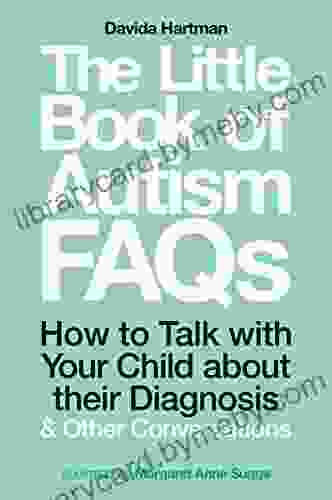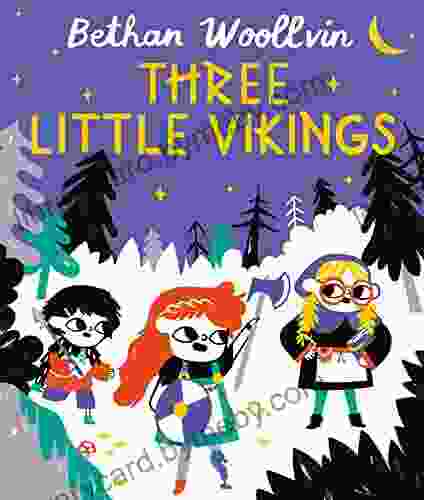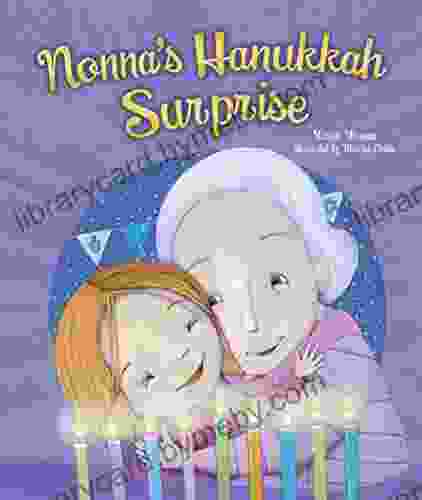Unveiling the Enigmas of Autism: A Comprehensive Guide to Understanding and Supporting Individuals with Autism Spectrum Disorder

Autism spectrum disFree Download (ASD) is a complex and multifaceted neurodevelopmental condition that affects an individual's social, communication, and behavioral patterns. Understanding ASD can be a daunting task, but it is essential for parents, caregivers, and educators to equip themselves with the knowledge and tools necessary to support individuals with autism.
This comprehensive guide provides a thorough overview of ASD, covering its diagnosis, symptoms, causes, treatments, and support strategies. Whether you are a parent, a caregiver, or an educator, this guide will empower you with the information you need to navigate the complexities of ASD and provide the best possible support for the individuals in your care.
The diagnosis of ASD is typically made by a healthcare professional, such as a developmental pediatrician or a psychologist. The diagnosis is based on a comprehensive assessment that includes:
4.6 out of 5
| Language | : | English |
| File size | : | 1314 KB |
| Text-to-Speech | : | Enabled |
| Enhanced typesetting | : | Enabled |
| Word Wise | : | Enabled |
| Print length | : | 114 pages |
| Screen Reader | : | Supported |
- Observation of the individual's behavior
- A detailed history of the individual's development
- Interviews with the individual's parents or caregivers
The diagnostic criteria for ASD are outlined in the Diagnostic and Statistical Manual of Mental DisFree Downloads (DSM-5). The DSM-5 criteria include:
- Persistent deficits in social communication and social interaction
- Restricted and repetitive patterns of behavior, interests, or activities
- Symptoms must be present in early childhood (before age 3)
It is important to note that ASD is a spectrum disFree Download, which means that the severity and presentation of symptoms can vary widely from individual to individual.
The symptoms of ASD can range from mild to severe and may include:
Social Communication and Interaction
- Difficulty understanding social cues
- Difficulty initiating or maintaining conversations
- Lack of interest in social interaction
- Difficulty making friends
Restricted and Repetitive Patterns of Behavior, Interests, or Activities
- Repetitive movements, such as hand flapping or rocking
- Intense interest in a particular topic or activity
- Insistence on routines or rituals
- Sensory sensitivities, such as sensitivity to loud noises or bright lights
Other Symptoms
- Language delays or difficulties
- Intellectual disability
- Hyperactivity and impulsivity
- Sleep problems
The exact cause of ASD is unknown, but it is believed to be caused by a combination of genetic and environmental factors.
Genetic Factors
Studies have shown that ASD is more common in families with a history of the disFree Download. However, most cases of ASD are not caused by a single gene. Instead, it is believed that a combination of multiple genes may increase the risk of developing ASD.
Environmental Factors
Some environmental factors, such as prenatal exposure to certain chemicals or infections, have been linked to an increased risk of ASD. However, more research is needed to confirm the role of environmental factors in the development of ASD.
There is no cure for ASD, but there are a variety of treatments that can help to improve symptoms and maximize an individual's potential.
Early Intervention
Early intervention is essential for individuals with ASD. Early intervention services can help to improve social, communication, and behavioral skills.
Educational Interventions
Educational interventions can help to address the individual's unique learning needs. Educational interventions may include:
- Special education classes
- Speech therapy
- Occupational therapy
- Physical therapy
Behavioral Interventions
Behavioral interventions can help to improve social, communication, and behavioral skills. Behavioral interventions may include:
- Applied behavior analysis (ABA)
- Pivotal response training (PRT)
- Social skills training
Medical Interventions
Medical interventions may be necessary to treat co-occurring conditions, such as anxiety, depression, or hyperactivity. Medical interventions may include:
- Medication
- Dietary supplements
- Biomedical treatments
In addition to treatment, there are a variety of support strategies that can help to improve the lives of individuals with ASD and their families.
Family Support
Families play a vital role in supporting individuals with ASD. Family support can include:
- Providing emotional support
- Assisting with daily care
- Advocating for the individual's needs
Community Support
Community support can include:
- Support groups
- Respite care
- Social events
- Educational resources
Government Support
Government support can include:
- Financial assistance
- Health insurance
- Educational services
- Vocational training
Autism spectrum disFree Download is a complex and multifaceted condition, but with the right support and care, individuals with ASD can lead happy and fulfilling lives. This comprehensive guide has provided an overview of ASD, including its diagnosis, symptoms, causes, treatments, and support strategies. By understanding ASD and the challenges it presents, we can create a more supportive and inclusive world for individuals with ASD and their families.
4.6 out of 5
| Language | : | English |
| File size | : | 1314 KB |
| Text-to-Speech | : | Enabled |
| Enhanced typesetting | : | Enabled |
| Word Wise | : | Enabled |
| Print length | : | 114 pages |
| Screen Reader | : | Supported |
Do you want to contribute by writing guest posts on this blog?
Please contact us and send us a resume of previous articles that you have written.
 Book
Book Novel
Novel Page
Page Chapter
Chapter Text
Text Story
Story Genre
Genre Reader
Reader Library
Library Paperback
Paperback E-book
E-book Magazine
Magazine Newspaper
Newspaper Paragraph
Paragraph Sentence
Sentence Bookmark
Bookmark Shelf
Shelf Glossary
Glossary Bibliography
Bibliography Foreword
Foreword Preface
Preface Synopsis
Synopsis Annotation
Annotation Footnote
Footnote Manuscript
Manuscript Scroll
Scroll Codex
Codex Tome
Tome Bestseller
Bestseller Classics
Classics Library card
Library card Narrative
Narrative Biography
Biography Autobiography
Autobiography Memoir
Memoir Reference
Reference Encyclopedia
Encyclopedia Blanche Wiesen Cook
Blanche Wiesen Cook Joseph Shuldiner
Joseph Shuldiner Bernard T Fitzpatrick
Bernard T Fitzpatrick John Jonas
John Jonas Bethany Warren
Bethany Warren Bob Bell
Bob Bell Jen Marlowe
Jen Marlowe Ben Argon
Ben Argon Witold Rybczynski
Witold Rybczynski Bill Hylton
Bill Hylton Daphne Jenkins Sheldrick
Daphne Jenkins Sheldrick Beth Hoffman
Beth Hoffman Bev Speight
Bev Speight Lucas S Lee
Lucas S Lee Kazim Ali
Kazim Ali Benj Pasek
Benj Pasek Bernard Connolly
Bernard Connolly Belle Yang
Belle Yang Piera Sonnino
Piera Sonnino Terri Johnson
Terri Johnson
Light bulbAdvertise smarter! Our strategic ad space ensures maximum exposure. Reserve your spot today!

 Arthur Conan DoyleNavigate the Icy Depths of History with "The Titanic: Surviving History" by...
Arthur Conan DoyleNavigate the Icy Depths of History with "The Titanic: Surviving History" by...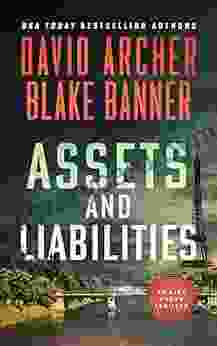
 Derrick HughesUncover the Secrets of Financial Success with Assets and Liabilities: A Book...
Derrick HughesUncover the Secrets of Financial Success with Assets and Liabilities: A Book...
 Brayden ReedMaster Your Martial Arts Technique: An Illustrated Guide to the Muscles Used...
Brayden ReedMaster Your Martial Arts Technique: An Illustrated Guide to the Muscles Used... Hugo CoxFollow ·16.1k
Hugo CoxFollow ·16.1k Nikolai GogolFollow ·12.9k
Nikolai GogolFollow ·12.9k Cody RussellFollow ·3.1k
Cody RussellFollow ·3.1k Dale MitchellFollow ·9.1k
Dale MitchellFollow ·9.1k Alec HayesFollow ·12.5k
Alec HayesFollow ·12.5k Philip BellFollow ·12.8k
Philip BellFollow ·12.8k Brandon CoxFollow ·7.9k
Brandon CoxFollow ·7.9k Colt SimmonsFollow ·13.9k
Colt SimmonsFollow ·13.9k
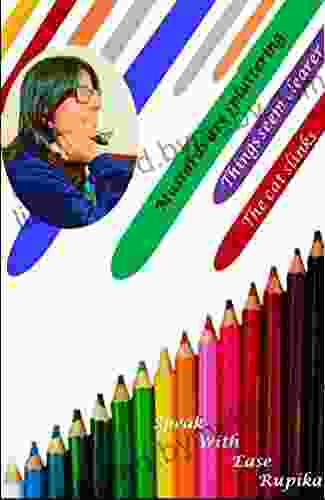
 Ivan Cox
Ivan CoxSpeak With Ease: The Ultimate Guide to Public Speaking...
By Rupika Raj ...

 Jesus Mitchell
Jesus MitchellVulcan Forge: A Suspense Thriller that Will Keep You on...
Vulcan Forge is...

 Dashawn Hayes
Dashawn HayesThe Carteret Family Bob Martin: A Comprehensive Review
Bob Martin's...

 Owen Simmons
Owen SimmonsUnlock the World of Cultural Nuances with "The Global...
Embark on a Journey of...
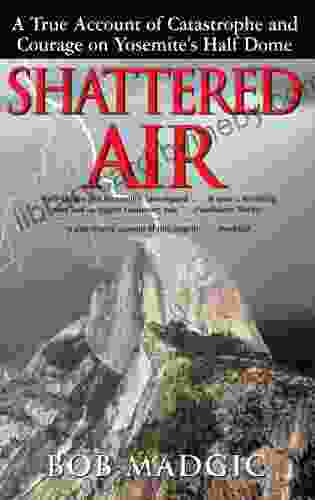
 Ian McEwan
Ian McEwanConquer the Mountain: True Account of Catastrophe and...
In the heart of California's stunning...
4.6 out of 5
| Language | : | English |
| File size | : | 1314 KB |
| Text-to-Speech | : | Enabled |
| Enhanced typesetting | : | Enabled |
| Word Wise | : | Enabled |
| Print length | : | 114 pages |
| Screen Reader | : | Supported |


